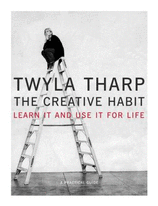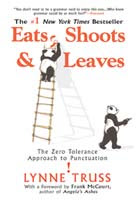(Ginna Foster) Last week, Lacey G. and I were doing some good old fashioned brainstorming. We were trying to distill what makes the Evening with an Author series unique. We came up with the below list:
1) It features local Nashville authors
2) It provides a behind-the-scene / non-scripted look at authors and their books
3) It's about promoting "smart conversation" between the attendees and authors
4) It's about building community / forging connections between book lovers in the greater Nashville area
We then took it one step farther by asking how LitMagic fit into the mix. It was clear that LitMagic was the perfect venue to do Q&As with upcoming authors. We see Q&As as teasers of sorts because they let you get into the mind of an author. As such, we sent the below questions to J.T. Ellison, author of Judas Kiss, J.T. who replied by email. J.T. will be the featured author on Thursday, January 22nd (6-7pm at Martha's at the Planation; see Swift Book Promotions for more details). I cannot wait to hear more from her in person. Look forward to seeing you there.
--Ginna F.
_________________________________
Explain your path to becoming a writer. Why/how did you select mystery/thriller genre?
I started writing full-time in 2004. I’ve written all my life, the requisite awful poetry and shorts, even got my degree in creative writing. But I was wholly discouraged by a college professor and gave it up. There was a thirteen year gap in my creativity, and I’m grateful to have the muse back.
The Taylor Jackson series began when I was recovering from back surgery, and had a long slog through rehab. I was reading a lot during that time, anything I could get my hands on. I came across John Sandford’s PREY series at the library, and got hooked. The unique setting – Minneapolis/St. Paul –
his main character – half cop, half rock star Lucas Davenport – sparked an idea. What about a female Lucas Davenport, set in another unique location, Nashville? If he can do it, so can I. Ahh, hubris. But his influence is definitely the reason I took the leap back into writing. Taylor Jackson was born on I-40, as I was driving downtown to rehab. She popped into my head fully formed and started talking in that low, smoky drawl. I was hooked.
Explain how Judas Kiss fits in with your other books?
Up to now, all my titles have been serial killer thrillers, with the killer as a point of view character. Which also which means the books are “how-done-its,” instead of mysteries, which are “who-done-its.” JUDAS KISS is actually a departure for me, because it has more mystery elements that the previous books. The story revolves around a single murder of a young pregnant mother in Hillwood. But it’s all the same characters, and it’s still a thrill ride.
Did you know you were writing a series when you started?
Yes. I knew Taylor was a franchise character from the beginning. She fascinates me. I strive not to reveal too much about her in each book, letting her grow over the course of the series rather than over the course of the book. I also set the books seasonally instead of yearly, so that inhibits her growth even more. I wanted to be sure that she remains iconic.
When you sit down to work on a new book, do you have the ending already figured out like John Irving? Or, do you have a general idea of plot and its drivers and then see where it goes?
I’m a pantser, which means I write by the seat of my pants. I don’t want to know all the details of a story, because if I’m surprised, the reader is surprised too. I have a general idea of what’s happening. I always know who the villain is, and their motivation. Every story grows from there.
How did you decide to make Nashville a main "character" in your book? Why not your hometown of DC? What fun facts have you learned about Nashville as a result of your research? Why should every Nashvillian read your series and in particular Judas Kiss?
Everyone writes books set in D.C., or L.A., or New York. I wanted to do something different. So that was my first thought. But I’ve fallen in love with Nashville, its dichotomies, the culture and the class structure. We have real, big city problems, yet the rest of the world only sees us as Music City, honkytonks and southern food. We are so much more than that, and I wanted to show the rest of the world the Nashville I see.
The books are as realistic a portrayal of Nashville as I can make them. Readers will recognize the settings; the crime scenes may be someplace they drive past every day. I think it’s fun to have a series set in your backyard. I know it’s fun for me to write them, to skulk around town looking for the ideal crime scene. Nashville is chock full of nooks and crannies that are the perfect settings for murder.
What is the best/most influential book you have ever read and why did it inspire you?
I’m a big Ayn Rand fan, and a big Plato fan. I think my favorite must be Rand’s slim volume ANTHEM, which is a parable for Plato’s Allegory of the Cave – humanity is shackled in a dark room and only shown interpretations of what reality is. One man (Socrates) breaks out of the Cave and sees reality for the first time: the blue of the sky, a real chair, a real piece of grass, and returns to tell humanity that they are being lied to. Of course, they can’t handle that truth and murder him. ANTHEM takes this timeless story and creates love out of hate, beauty out of ugliness, and freedom out of horrendous captivity. It’s beautifully written and inspiring.
What piece of advice helped you out the most as a writer?
I have a sign on the door to my office that reads: There are no rules except those you create, page by page. Stuart Woods said that to me in an email, and it freed me as a writer. I’d been so constrained by the “proper” usage of words and sentence construction that my writing was stilted. Once I quit following the rules, things improved dramatically. And John Connolly, author of the Charlie Parker series, some of my all-time favorite books, once told me that all good books find a home. That kept me in the game to get published.
 The holidays have just ended, which means I’ve done my annual revamp of my writing system and set my goals for the year. Every Christmas, I take a week off from writing and focus on the art of the craft. First up is Stephen King’s glorious On Writing, one of the best writing books out there. By the end of the year, I’ve become so bogged down with deadlines and To Do lists that I stop reading for pleasure. King’s book helps me refocus, gives me permission to read what I want, to enjoy the art of reading for its own sake instead of simply for research. It’s invaluable advice, because I find that when I’m reading, I write cleaner and more voraciously.
The holidays have just ended, which means I’ve done my annual revamp of my writing system and set my goals for the year. Every Christmas, I take a week off from writing and focus on the art of the craft. First up is Stephen King’s glorious On Writing, one of the best writing books out there. By the end of the year, I’ve become so bogged down with deadlines and To Do lists that I stop reading for pleasure. King’s book helps me refocus, gives me permission to read what I want, to enjoy the art of reading for its own sake instead of simply for research. It’s invaluable advice, because I find that when I’m reading, I write cleaner and more voraciously. list, Twyla Tharp’s The Creative Habit. This is a must read for any creative person, be you writer, painter, dancer, musician…. I was so struck by her concepts, the approach she takes to harness her creativity – because honestly, as artists, we sometimes lose the forest for the trees when it comes to creating. Tharp’s insouciant attitude, honesty and work ethic barrel through the pages, making every chapter a foray into the parts of your psyche that you don’t often credit for honing your craft. She’s helped me reconnect with the joy of the creative process, not just the rush I feel from writing.
list, Twyla Tharp’s The Creative Habit. This is a must read for any creative person, be you writer, painter, dancer, musician…. I was so struck by her concepts, the approach she takes to harness her creativity – because honestly, as artists, we sometimes lose the forest for the trees when it comes to creating. Tharp’s insouciant attitude, honesty and work ethic barrel through the pages, making every chapter a foray into the parts of your psyche that you don’t often credit for honing your craft. She’s helped me reconnect with the joy of the creative process, not just the rush I feel from writing. Julie Morgenstern’s Time Management from the Inside Out was a big hit with me this week, because I’m looking for efficiencies in my schedule that will allow me more creative time. I used the book to create a Time Map, one that schedules all my waking hours, and flips my writing day so I write in the morning, then deal with business in the afternoon. I’m excited to try this new method.
Julie Morgenstern’s Time Management from the Inside Out was a big hit with me this week, because I’m looking for efficiencies in my schedule that will allow me more creative time. I used the book to create a Time Map, one that schedules all my waking hours, and flips my writing day so I write in the morning, then deal with business in the afternoon. I’m excited to try this new method.



